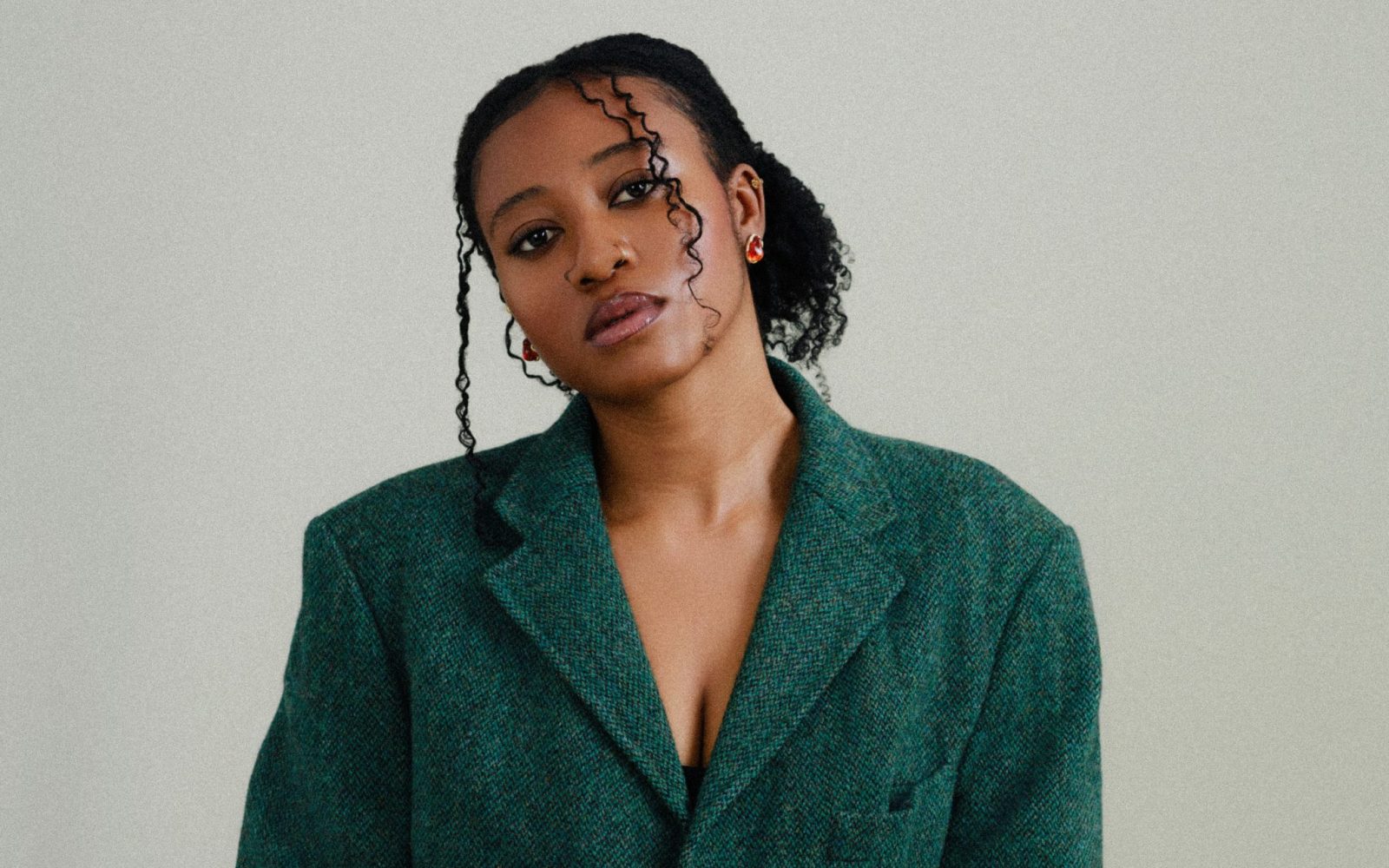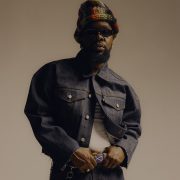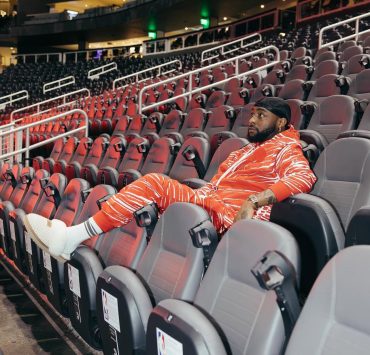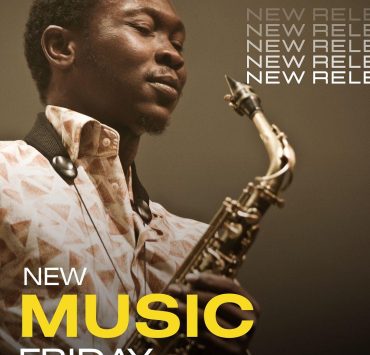Efue Talks ‘Memorabilia’, Bread, and Building Her Sound

Efue appears on our Zoom call, a semblance of the peace her music carries and a stark contradiction of the chaotic city she had relocated to: Lagos. Against a backdrop of her brightly lit room, she stares back at me with the hospitable vibrancy and reassuring aura her music exudes. Efue, a jack of many trades, talks purpose, career shifts, and music as self-expression. In our 30-minute conversation, she reveals her not-so-secret zealous love for bread and unpacks the journey behind her debut project, ‘Memorabilia’, released only a year into her career.
Q: To start, could you give us a little background about yourself, and just so we get it right, how is your name correctly pronounced?
A: It’s pronounced eh-foo-ay. I’m from Edo State, but I grew up in the North, Kaduna State to be precise. My parents are both from Edo, but I lived in Kaduna until few years ago, when I moved first to Abuja and then to Lagos.
I come from a family of music lovers, so I was surrounded by music from early on. Books were another big part of my childhood. I read a lot, and that eventually pulled me into literary works. The storytelling side of my music is heavily rooted in that. Oh, and I was a literature student in school too.
Q: In the short written piece that rolled out with “Beauty and the Beat”, you mentioned straying away from your “purpose” for a while, which is music. Could you share what happened during that period and how you found your way back?
A: That part wasn’t tied specifically to the release of “Beauty and the Beat”. It was from a much earlier period. Over the years, I dabbled in a lot of things; I sold food, tried selling soap and skincare, got into tech and design, even started a computer science degree that I eventually abandoned.
But no matter what I did, I always came back to this point where I told myself, “You know you want to do music”. Nothing came to me as naturally as music did. So one day, I just decided to give it my full focus, to pour all my time and energy into it. That’s the message I was trying to pass across in the rollout for “Beauty and the Beat”. After all the little side quests, I came back to the thing I truly love.
Q: Speaking about the rollout, I have to say the bread analogy you used was interesting. You painted bread as this special thing and likened it to your music. Is bread really your favorite thing to eat?
A: Oh, I do love bread. Maybe a little too much. I’ve been struggling with that love for a long time because, you know, bread isn’t supposed to be the healthiest thing for us. But every time I try to take a break from it, I find myself going back.
Q: When did you first discover music, and at what point did you decide to start pursuing it professionally?
A: I had an intimate live show in 2018, but afterwards I found myself drifting again, chasing other side quests. Along the way, I got commissioned to ghostwrite a song for someone. I honestly didn’t expect to be paid for it, but I was, and that felt like a eureka moment. It made me realize: I can actually do this.
A friend then advised me to take songwriting seriously and start earning from it since I was good at it. That’s when I included songwriting among my many side quests, and from there, music became something I pursued professionally.
Q: You’ve often described music as a higher calling. What do your aspirations with this gift look like in the long run?
A: I think as an artist, the first thing is to make art for yourself, and then share it with others. For me, the aspiration is that when someone hears my name, they know my music, they love it, and they find it relatable.
I don’t think there’s ever a final point of fulfillment, but for me, being actively involved in making music, that’s purpose. As long as I’m creating, sharing, and being happy in the process, that’s the dream. Of course, every artist wants to “blow”, but beyond that, I want a genuine relationship with listeners who connect with my work. Honestly, just being this person right now—actively creating—I feel like I’m already living my aspirations.
Q: Your sound leans into a style that isn’t the most mainstream in this part of the world. How do you feel about that, and how have you approached carving out space for yourself?
A: I know what pop music here sounds like, but I also believe Nigerians are ready for new sounds. Good music speaks for itself. if it’s consistent, people will adjust and embrace it. I don’t mind the narrative that “this isn’t the kind of music they do here”. My tribe will find me. Someone has to start something, and I’m fine with being that person.
I only started experimenting with Afrobeats a few years ago. It was something I had to learn; how to fuse my style with other genres and arrive at this Afro-R&B blend. But I don’t know what sound I’ll be drawn to next year, and that’s okay. It’s all part of the process.
As for carving space, I realized hoarding music doesn’t help. The only way is to keep putting work out there. One person hears it today, tells another tomorrow, and slowly it spreads. That’s how I’m creating space for myself, just by staying involved in the process.

Q: Let’s talk about process. What does a typical song journey look like for you, from the first spark of an idea to the final master?
A: Every song is different. Sometimes a producer sends me a beat, I hear it, and I finish a song in a day. Other times, nothing clicks until weeks later. Sometimes it’s a melody that won’t leave my head until I finally write it down.
For example, the melody for my debut single ‘Timeless’ was in my head for about three years before I finally put words to it. That song went through so many tweaks with the producer before it became what it is now. On the other hand, “History” came together in less than a month. I recorded the vocals the day after I got the beat, and it was released the next month. Every song has its own journey.
Q: Beyond likening your music to bread, how else would you describe it, and in what ways do you want it to inspire listeners?
A: I’d say my songs are like diary entries. Every song draws from my life and experiences in one way or another. I want people to hear a song and say, “I’ve been going through this, and this track perfectly captures how I feel.”
If I had to describe my music in one word other than bread, it would be relatable. I want listeners to resonate with it on a personal level.
Q: After releasing singles like “History” and “Wanna Know”, you went on to put out your debut project ‘Memorabilia’ roughly a year into sharing music on DSPs. What pushed you to release a body of work at that point?
A: Before I moved to Lagos, I was writing a lot of songs. I had so much on my mind, and I turned to music as a way to express myself. I wasn’t even thinking about speaking to people at that point, it was just about putting my feelings into words.
When you listen to the songs on ‘Memorabilia’, you can tell they share a mood, a similar headspace. I also felt it wasn’t enough to just release singles. I wanted to create a collection that captured where I was in that era of my life. As an artist, I think it’s important to leave behind these little capsules of your different eras. That’s what ‘Memorabilia’ was for me; a snapshot of that phase. And of course, I’ll move into new eras and create new works as I grow.
Q: “Cloudy” is such a moving opener on Memorabilia. What or who inspired that track?
A: I probably shot myself in the foot earlier when I said every song comes from personal experiences, because now everyone will be curious! “Cloudy” was written about last year when I was still putting covers and short originals online. At the time, I was going through a breakup, and “Cloudy” came out of that period.
When my manager heard it, he asked me to send him the stems. We worked on it together, developed it, and that’s how the final version was born. It was definitely inspired by someone from a past relationship.
Q: What would you say is your favorite part of making music, the moment that excites you most in the process?
A: For me, it’s when the lyrics and melody finally click together. Sometimes I start with melody, sometimes with lyrics, and I often piece songs together from the end or the hook. But that exact moment when everything aligns and it sounds great, that’s the magic for me.
I’ve heard songs with strong lyrics but weak melodies, or great melodies with shabby lyrics. But when I manage to balance both and feel satisfied with how they sit together, that’s the best part of the process.
Q: Looking ahead, are there dream collaborations or sonic directions you’re eager to explore now that you’re past the ‘Memorabilia’ era?
A: First of all, we’re not past the ‘Memorabilia’ era yet, it’s still ongoing. But in terms of dream collaborations, I’d say Jon Bellion and Sade, if she ever decided to return to music.
Q: What’s your favorite Sade song?
A: I’ll go with the crowd and say “Smooth Operator”. But honestly, I can’t pick just one. I consume her music a lot, both as a fan and as someone studying her career, and I love all of it. Same goes for Jon Bellion.
As for sonic direction, I’m still experimenting. I have a bunch of beats from different producers on my laptop—Afrobeats, House, Hip-Hop, R&B—and I plan to attempt them all.





